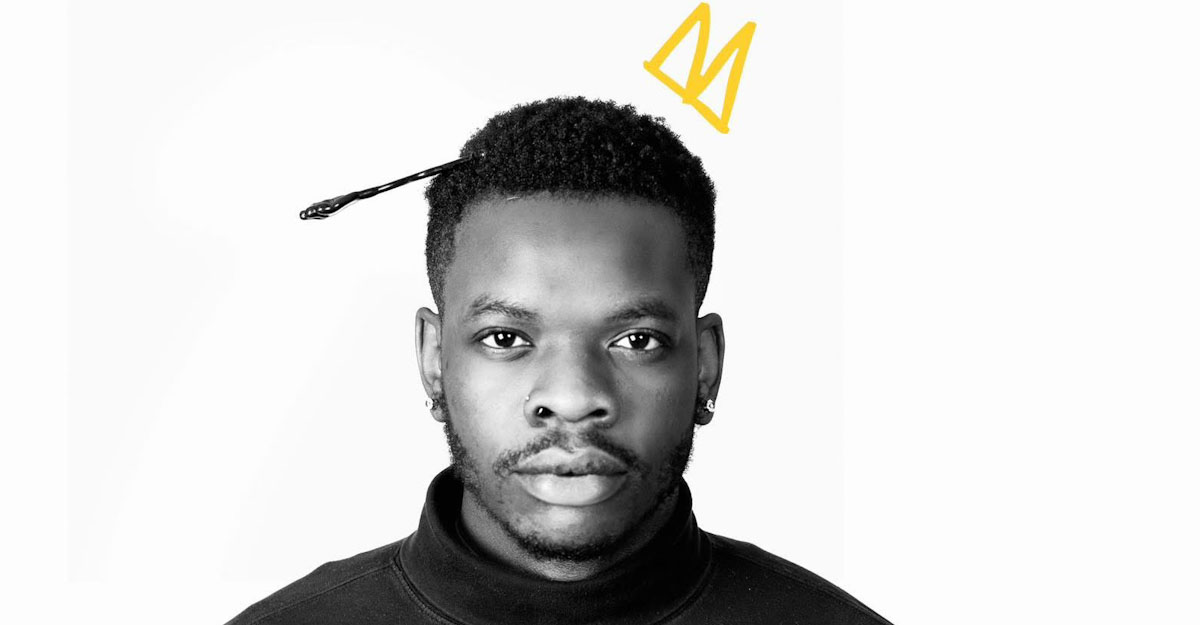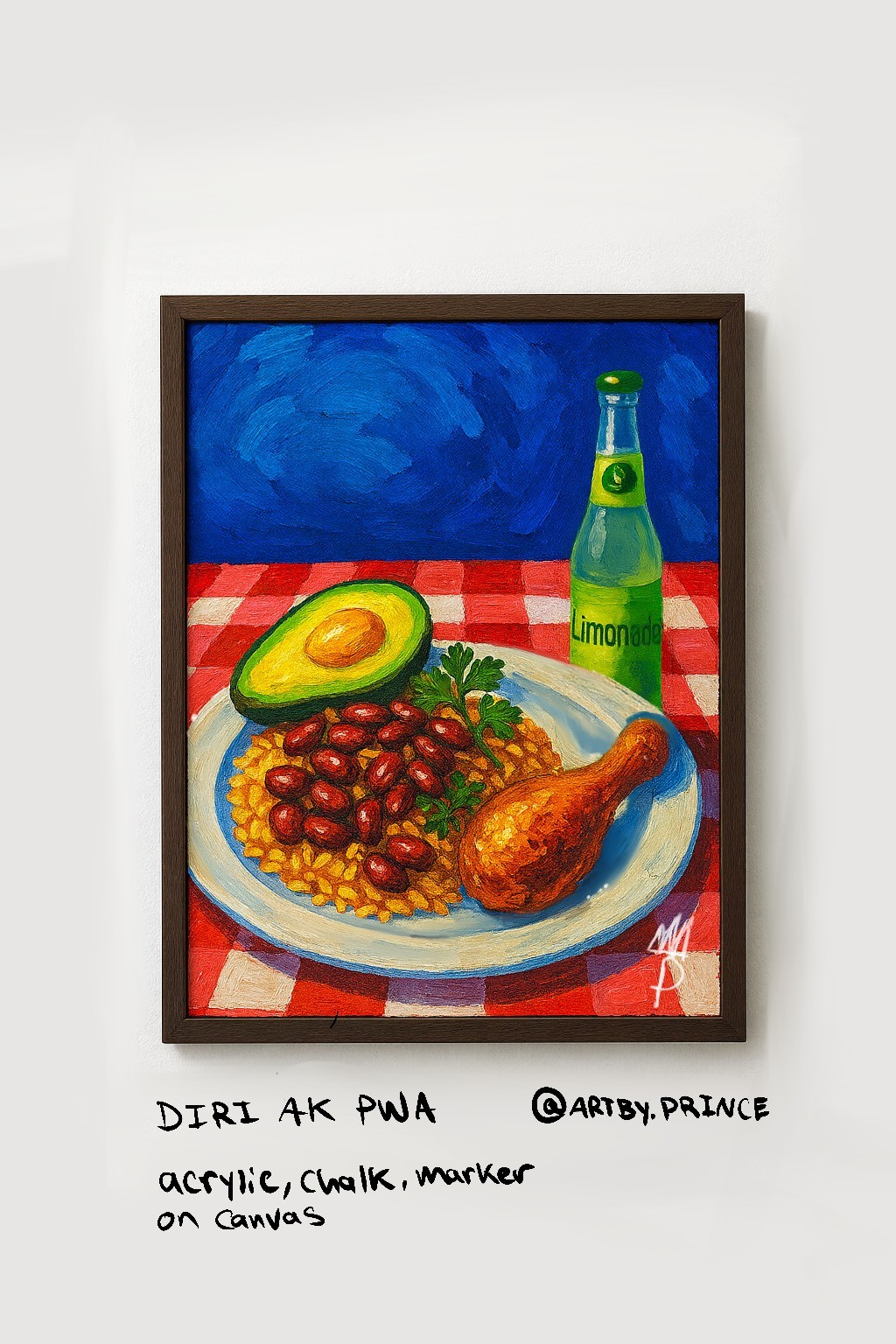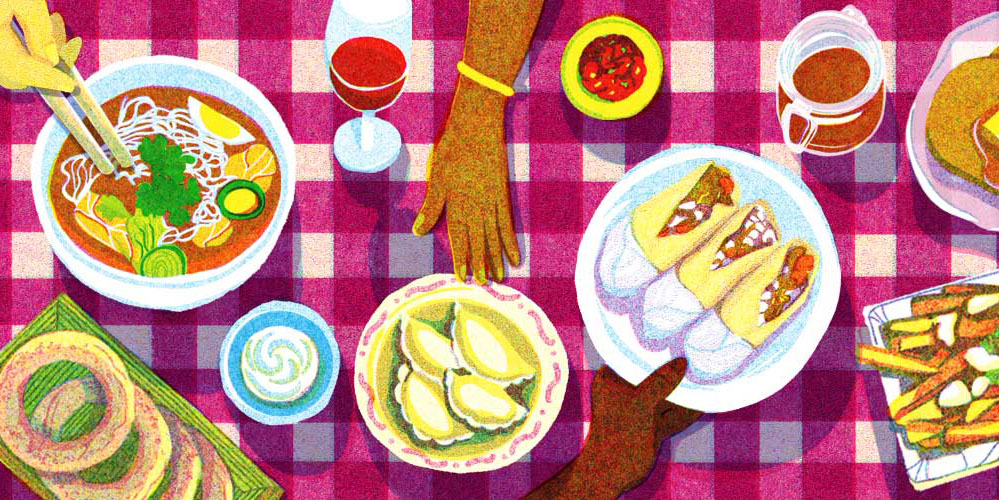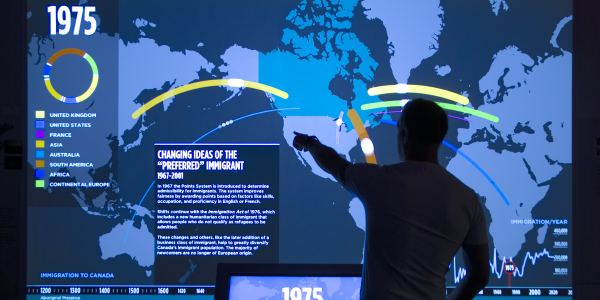
Prince Churchill was born in poverty in Haiti before being put into an orphanage at age 6. Well, he thought he was six—but more on that later.
Prince is currently the artist-in-residence at the Museum, where he has been creating/curating a collection of artworks, stories and recipes. He is a graduate of the Nova Scotia College of Art and Design and runs a studio called Art by Prince.
A struggle to find food
As a young child, before moving into the orphanage, he recalls, he was "to the point where we had six people in a tent-roofed building that was maybe 10 foot by 10 foot."
To stave off hunger, they ate "mud cookies, which are literally just dirt with some salt and sugar so that you can quench your hunger." Other times, he and his brother stole crackers from market stalls. Or they fashioned slingshots out of whatever they could find and used them to shoot small birds to eat. "It sounds sad," says Prince, "but they are some of my fondest memories, and have helped me in my entrepreneurial journey, to adapt and not give up."
When he moved into the orphanage, he was thrilled to have regular food to eat. This experience marked him. "My favourite food by far is rice and beans and chicken," a meal he says he ate at the orphanage more than three times a week.
But, he says, "None of us were ever full."
He lived in the orphanage for four years until 2010, when he was adopted by a Canadian family and moved with them to Lower Sackville, NS.
“It blew my mind”
Of course, this brought a change in all aspects of his life, including the way he thought about food.
"When I moved to Canada, the idea [that] you can eat food and be full blew my mind."
But, he says, "my connection to food was just very skewed... I had worms in my stomach, so I ate a lot," he says, "about twice, maybe three times more than my grown dad."
It wasn't just the amount of food. "I also was just very protective of the food that I had because when I was in the orphanage, I always had my arm around my food while I ate."
The doctor said to let him eat—that it would be healthy for him to gain weight. "But also, it was just a way for me to understand that I am safe. This food is not going to go anywhere."
How hunger shapes the relationship to food
Prince's early childhood in Haiti shapes his relationship to food, even today.
"Looking back at it now helps me not waste food and kind of not take it for granted," says Prince. "When people waste food, it's the biggest heartbreak for me. I even went in the kitchen industry to prevent that, and did a whole design project to find a way to prevent food waste because that's one of the things that just really irked me."
He teamed up with restaurants and other food-related businesses around Halifax. "We would use things like banana peels, vegetables, stock, or whatever--those pieces you throw away--and then we would grind them up." Using chemical treatment processes to turn it into pigments, he turned the otherwise wasted food into watercolour paints.
The project was called Palette Paint. Prince says, "I've kind of used art and food as a way to change my perspective."

A changing identity
Because he didn't choose Canada, Prince says he doesn't often think of himself as an immigrant. As an adoptee, his immigration story is different. And yet, he shares observations with friends who are immigrants, including the "immigration tax" - the sense of obligation to send money back to their country of origin to support family.
Although he knows some of his Haitian family, he doesn't keep in regular contact because "it just seems like random things come up where I have to edit my identity from the ways that I remember it. And then over time it just really messes with your head when people just give you these random things that are obviously true about you, but you didn't know, and it changes how you see yourself."
Throughout his life, Prince has had to "edit" his identity several times- from orphan to family member, from Haitian to Haitian-Canadian. But last year, he learned that he is two years older than he previously thought - that when he entered the orphanage, he was probably eight instead of six. Learning this was upsetting - not only another source of upheaval, but also a forced change of identity. Understandably, he has stuck with telling people that he's 24 rather than 26. "It's less confusing," says Prince.
Meet Prince
Join Prince on October 3, 2025, for Paint the Plate Night, an evening of culture, cuisine and creativity. Click here for more details and to register.

